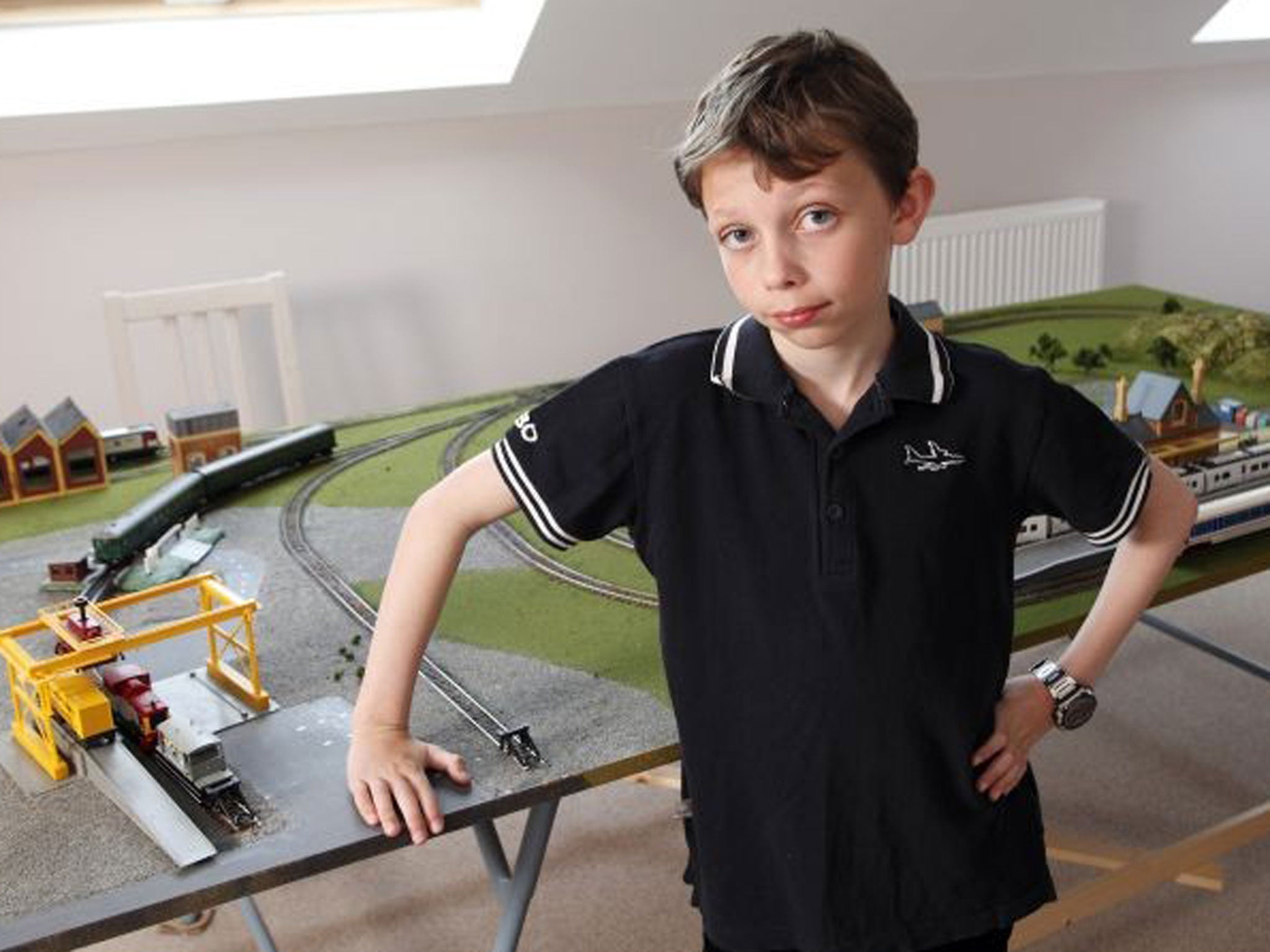Grace Dent on TV: Child Genius, Channel 4
What do all these little know-it-alls know if they don't know how to have fun like other kids?

There's an excellent moment in the 1989 movie Parenthood where Gil Buckman (Steve Martin) and his very average kids are at a family gathering. A child-genius cousin is in their midst – one very much like the ones in Channel 4's “clever kids are tested at Mensa” documentary. This young cousin is being hot-housed in Cantonese and advanced maths, and the extended Buckman clan is invited to coo at her greatness. Into the mix runs Gil Buckman's four-year-old son with a bucket on his head, burbling and bleating. The kid runs towards the nearest wall and begins joyously bashing his head. “Um, He likes to butt things with his head,” explains Gil's wife, awkwardly. “How proud you must be,” says the child-genius's father. As a viewer, one can't help but be on the side of the joyous kid having big dumb fun thwacking his skull off a wall. Not the poor little tyke who made the mistake of showing adults she had a gift for memorising Cantonese verb endings, who shall never know the joy of extreme unfettered daftness. And those silly moments are so fleeting in human development. Seriously, I would put my head in a bucket right now and run around bleeping but my mortgage lenders take a very dim view of this as payment.
I felt a little concerned for all the small boffins in Channel 4's Child Genius; for Hugo, Shrinidi and Longyin. Hyper-clever, yet isolated by their gift. We want our kids to be dynamic and gifted, but, as this documentary displayed, the day-to-day admin of this is as exhausting as being mum or dad to the school sloth.
Hugo, 10, has the entire British rail network committed to memory. Hugo's brain is so enormous, so rapidly flicking and so lacking in anyone clever enough to challenge or correct it that, 10 minutes in, his company is an arduous task. He is also a tiny boy and none of this is his fault at all. By the age of 10, Hugo has developed no powers of humouring those less able than him, or hiding his genius under a bushel to fit into social situations. “Are we clever?” the documentary producer asks him, referring to the camera crew. “Average,” Hugo replies without a flicker of thought, waving his hand about in a “tepid” manner. This is amusing now but when he's 25 will be the nadir of rudeness.
Hugo loves to ride on trains shouting out the log-book numbers and engine sizes of all he spots. He is terrifically noisy. I want to tell him to shut up, but doesn't polite modern society say we should never tell kids to shut up? It stifles their growth. But Hugo's brain has grown enough and it's giving me a migraine. Hugo's mum, Michelle, is the highlight of the hour. She is weary and dry-humoured, hoping aloud that by forcing Hugo to take up trumpet lessons he might join an orchestra and meet the opposite sex, “and possibly get a shag out of it… when the time comes”. It's one of the sweetest, most human moments of the whole documentary. Hugo's parents look like they need a good holiday – and let's be honest here – without Hugo. Actually, I'm sure Hugo would be fine left at home for two weeks. He'd probably run the household more logically and cost-efficiently than the adults, before changing the locks.
Tiny adorable Josh, eight, was a chess “prodigy”. Well, OK, he was good at chess. The fact his mother had quit her job as an architect and was making him play 50 hours a week meant he was rather excellent at it. At the Mensa test, Josh was nervous and shy. He was unable to answer strings of difficult maths questions, scored zero points in the first round and wanted to go home. Josh's mother quickly put her client/child straight on the valour of competing and chucked him into round two. I'm not a child-care expert but I would have thought taking him home, buying him ice cream and letting him watch Horrible Histories in the crook of your arm, followed by tickling, silly voices and his favourite dinner would be a nicer option. But this isn't about nice, is it? It's about being the best.
Life isn't any more silly for 10-year-old Longyin, whose dad Terence is an ex-Hong Kong policeman. Longyin's rigorous after-school schedule leaves little time for ad-hoc joy. Half an hour of physical education, one hour of school homework, half an hour of helping around the house, plus one hour of Chinese language and then, if all has gone to plan, half an hour of ping pong – as long as he learns as he plays. Will Longyin thank his father for this in 10 years' time? And what if all this hot-housing comes to nothing? Or worse still, leads to a mediocre job with so-so wages that can't support them all forever? Terence has thought about this, it's clear.
“You either have discipline in your first 16 years and then enjoy the remaining 60. Or you do whatever you want in the first 16 years and then you become really really depressed, or homeless, for the next 60 years.” At this point, I turned off the TV, put the waste-paper bin over my head and ran around the office, butting things, just having a little “me” time.
Join our commenting forum
Join thought-provoking conversations, follow other Independent readers and see their replies
Comments
Bookmark popover
Removed from bookmarks